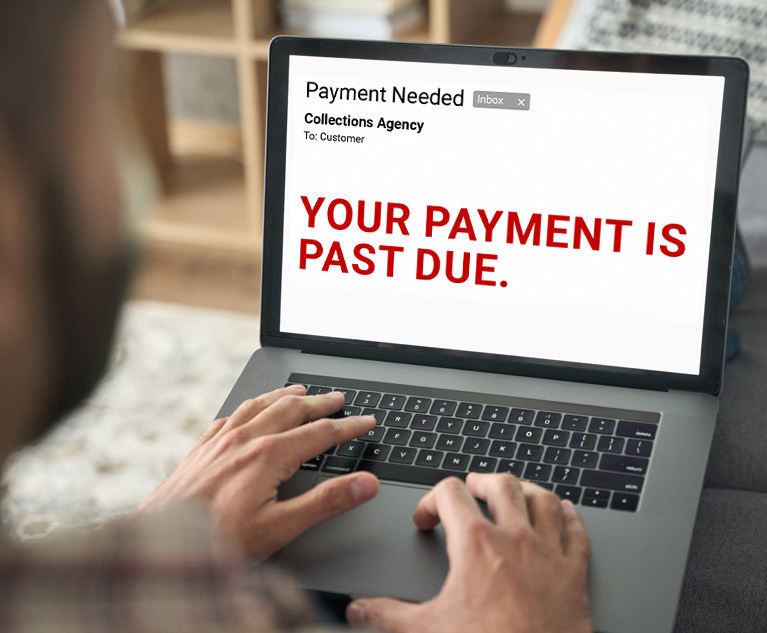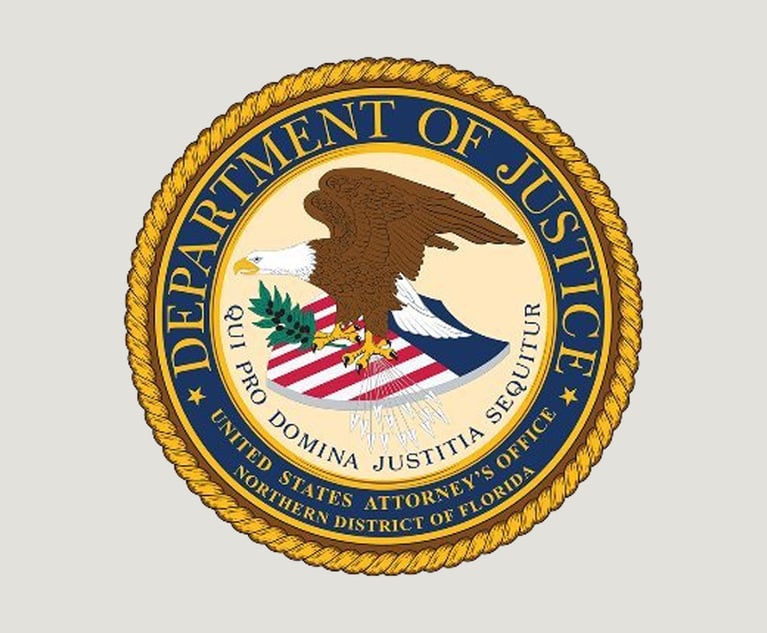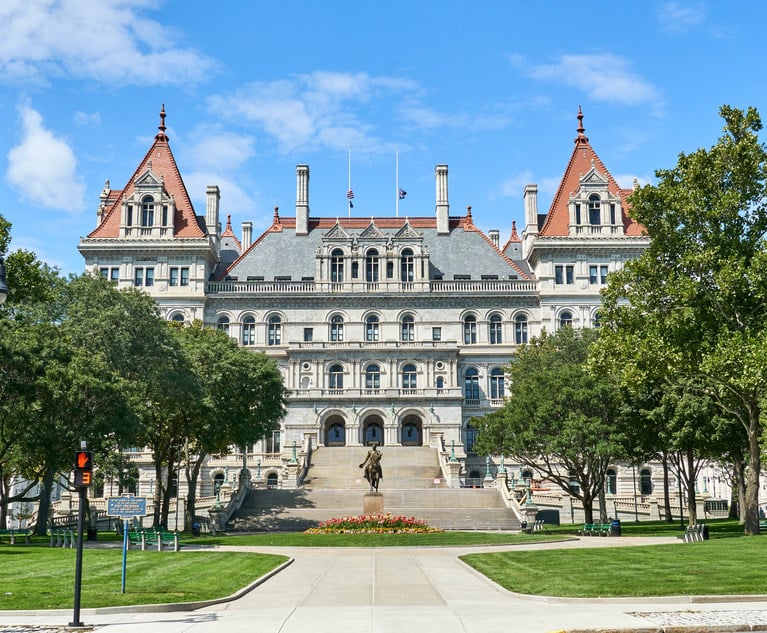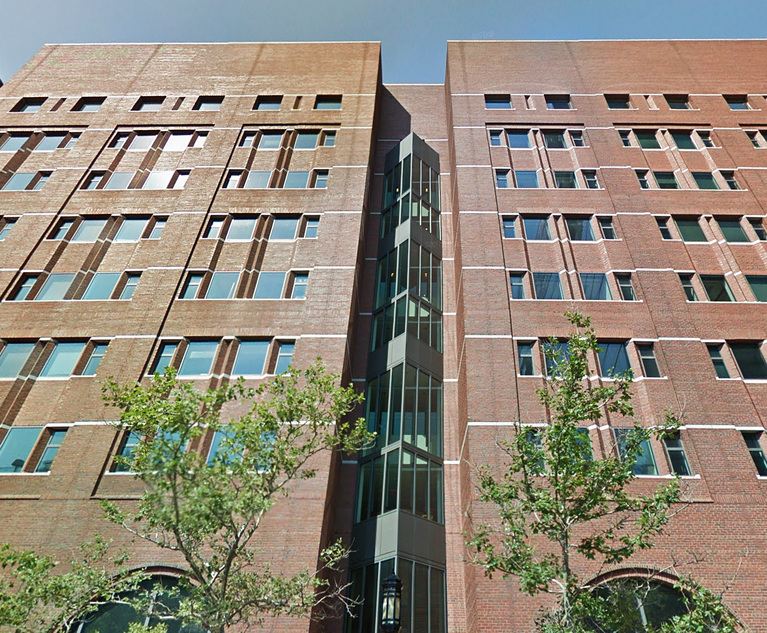Bill collectors who contact debtors via email could fall into a new litigation trap, as some debtors are filing suits claiming that emailed collection notices sent at night are in violation of federal law.
The emerging conflict over electronic communications sent at the wrong time could bring new opportunities for lawyers representing debtors, and new headaches for collection agencies. But guidance from the courts about whether such cases violate the Fair Debt Collection Practices Act appears to be lacking so far.
Quentin Howard of Warren County, Pennsylvania, is one such debtor. He was the plaintiff in a suit filed in the Western District of Pennsylvania in March 2023 on behalf of a class of people who were sent emailed notices between 9 p.m. and 8 a.m. or on weekends from TrueAccord, a debt collector.
Howard claims the company sent his email at 10:13 p.m. on Saturday, Nov. 12, 2022, in violation of the FDCPA. Howard allegedly experienced emotional distress, including anger, restlessness and increased heart rate, as a result of the improper email, not to mention wasted time and annoyance, according to his suit.
Old Policy, New Practices
The Consumer Financial Protection Bureau clarified its rules in 2021 to allow collection agencies to use email, text messages or social media to seek repayment of outstanding debts.
And the collections field is increasingly relying on electronic messages to reach debtors because the cost is less than letters or phone calls, according to industry observers.
But can plaintiffs prevail based on rules about timing of communications concerning collections from the FDCPA, which dates to 1977, when email and text messages didn’t exist?
The outcome of Howard’s suit is unclear, since it was sent to arbitration and then listed as dismissed.
Howard was represented by two New Jersey lawyers—Scott H. Bernstein of the law offices of Scott H. Bernstein in Roseland, and Yaakov Saks of Stein Saks in Hackensack. They did not return calls about the case; nor did Lauren M. Burnette of Messer Strickler Burnette in Jacksonville, Florida, the lawyer for defendant TrueAccord.
‘Their First Avenue’
Richard Perr, chair of the Consumer Financial Services Practice Group at Kaufman Dolowich in Philadelphia, expects to see such suits become more common as the collection industry abandons phone calls and postal mail in favor of less costly methods of contacting debtors.
“The industry is heavily turning towards electronic communication. Anyone who’s engaging in any sort of credit transaction today is including an email address or a cellphone with their applications. So when that file has been transferred to a debt collector because something hasn’t been paid, their first avenue of communication is going to be utilizing those, because that’s the easiest and least expensive way to communicate,” Perr said.
 Fort Lauderdale attorney Jibrael S. Hindi of the Law Offices of Jibrael S. Hindi. Courtesy photo
Fort Lauderdale attorney Jibrael S. Hindi of the Law Offices of Jibrael S. Hindi. Courtesy photo“So what that will lead to is those people that become delinquent and deficient are going to be communicated with in the way that they have preference for. And that’s going to lead to a lot more of these lawsuits,” Perr said.
Most operators in the collections field are sophisticated and aware of the email timing issue and take pains to send emails only in noninfringing time periods, Perr said. Still, he has seen a handful of suits over the timing of collections emails.
The critical question is not what time the message arrives in the recipient’s mailbox, but what time the sender transmits it, he said.
Florida has seen a steady stream of suits over emailed collection notices that are sent at night or on weekends.
Jibrael S. Hindi of the Law Offices of Jibrael S. Hindi in Fort Lauderdale, Florida, said he filed more than 1,000 suits on behalf of individuals who received emails sent by creditors at night or on weekends. But Hindi’s suits are largely filed based on the Florida Consumer Collection Practices Act, rather than the FDCPA.
That’s because the Florida law covers creditors, such as local electric companies, as well as debt collectors, whereas the federal law only applies to debt collectors, which is a much smaller group, Hindi said. His cases over emails tend to settle, often through what he calls mass arbitrations, and some defendants continue to engage in the offending conduct after settling, Hindi said.
Manuel Newburger, who represents consumers in suits at Barron & Newburger in Austin, Texas, has been following the Florida litigation over emailed collection messages. He is not sold, however, on their merits: a consumer is free to ignore an email, just as the consumer can open a letter, or not. He is not convinced that emails sent before 8 a.m. or after 9 p.m. are inconvenient.
“It is ironic that these suits all appear to undermine what appears to be the general preference of consumers to receive emails which, like letters, they can read at their convenience, rather than phone calls from debt collectors,” Newburger said. “I would argue that unless they are excessive, emails are also more convenient than snail mail as they can be deleted with a keystroke and don’t have to be recycled or shredded.”








